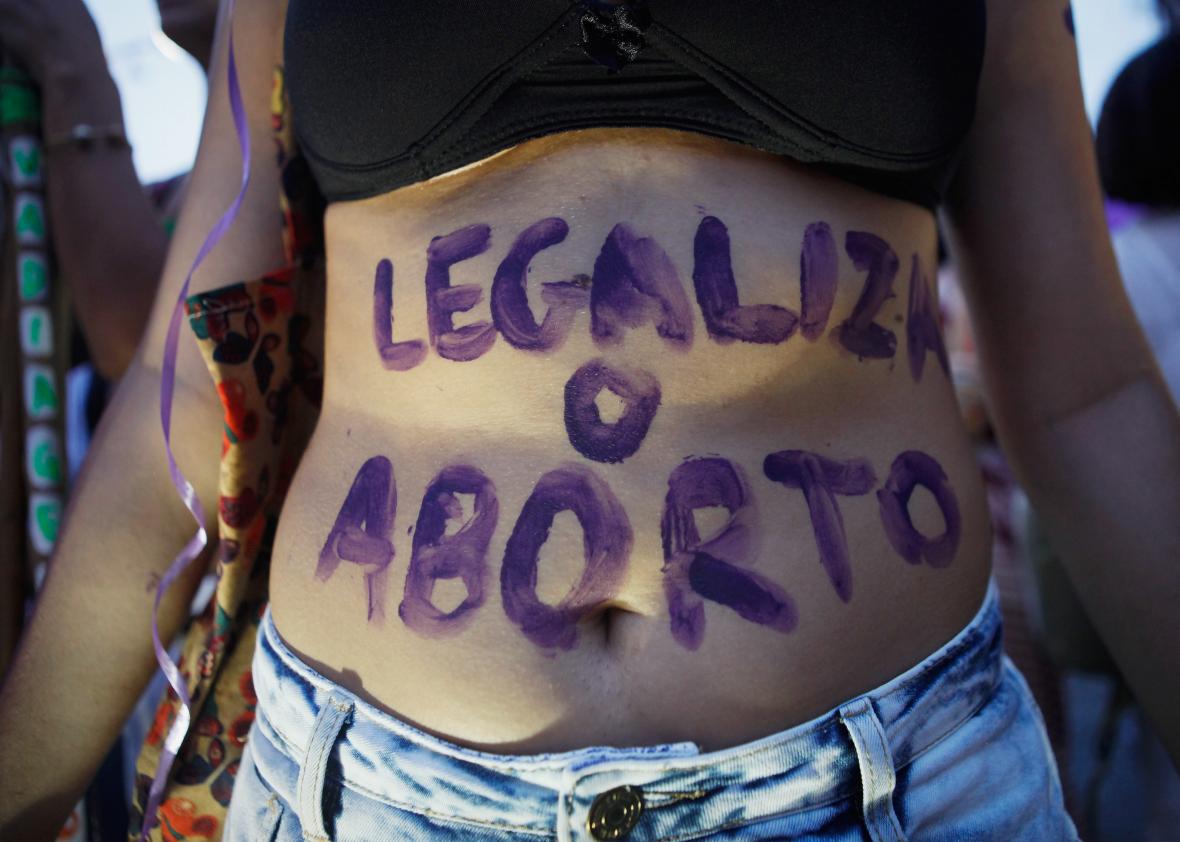Pregnant women in Brazil who fear they’ve contracted Zika, the virus that is believed to cause the severe birth defect microcephaly, are going to great lengths to access abortion drugs. But their safest and most reliable options are frequently blocked by the government; according to the Los Angeles Times, Brazilian officials have been confiscating the drugs that an international women’s advocacy group has been sending to Brazilian women in the mail.
Women in Brazil are caught in an impossible situation: The Zika epidemic is severe enough that a senior member of the country’s health ministry advised women in high-risk areas late last year, “Don’t get pregnant at the moment.” But, as Christina Cauterucci has written at Slate, unplanned pregnancy is a reality, and, given that Brazil is a country where abortion is strictly illegal, many woman are finding themselves in trouble. Brazil only makes abortion exceptions in cases of rape, to save the life of the woman, or if the fetus has a fatal birth defect called anencephaly. As the L.A. Times reports, “relatively safe clandestine abortions are available in Brazil to those able to pay around $800 or more, almost four times the monthly minimum wage”—but that leaves poor women vulnerable to Zika’s possible impacts on pregnancy.
Many of these women turned to the international advocacy group Women on Web, an online collective that mails misoprostol and mifepristone—the World Health Organization-approved regimen for inducing abortion—to women in countries where abortion is banned.
Women on Web spokeswoman Leticia Zenevich told the L.A. Times that her organization “received 9,500 emails last year from women largely in Brazil inquiring about abortion medication, and an additional 10,400 emails from women in the Spanish-speaking Americas.” Since February 1, the group has been providing drugs free of charge to women in Zika-affected countries and has sent “dozens of packages” to Brazil. But Women on Web says that 95 percent of the drugs it sent to Brazilian women were seized by the government. As a result, the group is temporarily suspending its operations in the country. “It’s not fair to tell women they are going to get a package, and it will not arrive to them,” Zenevich told the L.A. Times.
The Zika outbreak has prompted a fresh wave of activism around access to abortion in Latin America. The Brazilian women’s rights group Anis is putting together a petition asking the country’s Supreme Court to allow abortion specifically for women who have contracted Zika. The United Nations’ Office of the High Commissioner for Human Rights has also said that “laws and policies that restrict access to sexual and reproductive health services … must be repealed and concrete steps must be taken so that women have the information, support and services they require to exercise their rights to determine whether and when they become pregnant.” But the Brazilian Conference of Catholic Bishops has made it clear that it opposes any softening of the country’s anti-abortion law. Pope Francis, lthough he has called contraceptive usage a “lesser evil” in the face of Zika, has continued to refer to abortion as “a crime, an absolute evil.”
There’s still much that we don’t know about Zika: Scientists are scrambling to confirm that it does in fact cause birth defects, and, to figure out how, and at what rate. As of early March, however, Brazil’s health ministry had confirmed the existence of 641 microcephaly cases that it considers to be associated with Zika—and had compiled accounts of over 4,800 cases with suspected links to the virus. Microcephaly, which causes babies to be born with abnormally small skulls and incomplete brain development, generally causes lifelong problems.
With Women on Web unable to continue operating in Brazil, women who fear Zika have fewer options than ever. The L.A. Times reports that some resort to doing business with traffickers, buying drugs that may be fake, or even dangerous. Others emailed Women on Web, expressing utter hopelessness, after their medication failed to arrive. In one message that Zenevich shared with reporters, a woman wrote, “I’m thinking of doing the worst … I really need help. I can no longer eat, and I cry all the time.” Another woman summed up the reality before her when her pills were confiscated for the second time: “Here in my town there’s nothing else to do, it’s either your service or nothing.”
